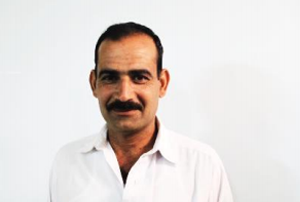Pakistan has an ensuing energy crisis that is affecting the economy on a massive scale. The power sector is faced with the burden of debt, production issues and lack of resources on the one hand, and power theft and pending bill payments worth billions of rupees on the other. People blame the authorities for negligence in service provision to justify nonpayment of their dues, while the latter lack the interest and/or capacity to improve their performance and facilitation.
Marhatti, a village in the tehsil and district Mardan with 700 households in the Khyber Pakhtunkhwa province, was also facing similar issues. The local Peshawar Electric Supply Corporation (PESCO) officials were non-responsive towards people’s requests, usually relating to meter installations, meter changes, or bill corrections. As a result, the people did not consider it a duty to pay their electricity bills.

People’s Empowerment and Consulting Enterprise (PEACE-KP) – a civil society organization implementing an energy reforms project funded by the USAID’s Citizens’ Voice Project – intervened in the PESCO division of Mardan, KP. Apart from enabling the local community to engage with the Senate Standing Committee on Water and Power and bring forward their issues and recommendations, PEACE-KP educated villagers about how they could play a responsible role in helping the country deal with this crisis by paying their dues on time and refraining from power theft. It also helped people understand how to engage with local authorities in an efficient manner.
Khan Zeb, a primary teacher from Marhatti, is an active and responsible citizen who believes in law. He has been in active community service for a long time, helping people get shelter, food and, extending a helping hand wherever required. “By any means possible, we must all help our fellow human beings,” says Khan Zeb. However, until PEACE’s intervention in Mardan, he did not know much about the process of citizens’ engagement with state institutions, power sector governance, or the legal mechanisms for obtaining basic rights. “We did not have any information about what was the right way to get our problems solved,” Khan Zeb tells his story, adding, “I could not get a meter installed at my own house for months.”
Khan Zeb was introduced to PEACE during one of its many community awareness meetings. As a result, he, along with several men from his village, was able to interact with the local Sub-Division Officer (SDO) of PESCO through facilitation by PEACE. This was the first time Khan Zeb and his friends had the opportunity to meet with the local Sub-Division Officer (SDO) of the PESCO. Consequently, he and his fellow villagers had their problems resolved within a few months. Khan Zeb realized the importance of understanding the process of engaging with government officials successfully and began to actively spread this knowledge..
Now, an even more active Khan Zeb, helps people understand their utility bills, tells them how to get their meters installed, or convinces them to pay their dues and stop power theft. Khan Zeb, now on good terms with the local SDO, always carries a list of the electricity bill defaulters. Whenever he stops for prayers or any other errand, he gathers a few people and conducts a meeting to spread awareness about what PEACE had educated him about. He has held more than 20 meetings so far, engaging with about 1,000 individuals.
Moreover, he conducts regular meetings with his fellow villagers too. 15 families in his village, previously involved in power theft, now pay their bills regularly, while 13 other households are paying their dues in installments. Meanwhile, another ten families have already cleared their name by paying their dues off. If more people like Khan Zeb are mobilized and start acting as agents of change, a Roshan Pakistan is indeed possible




















